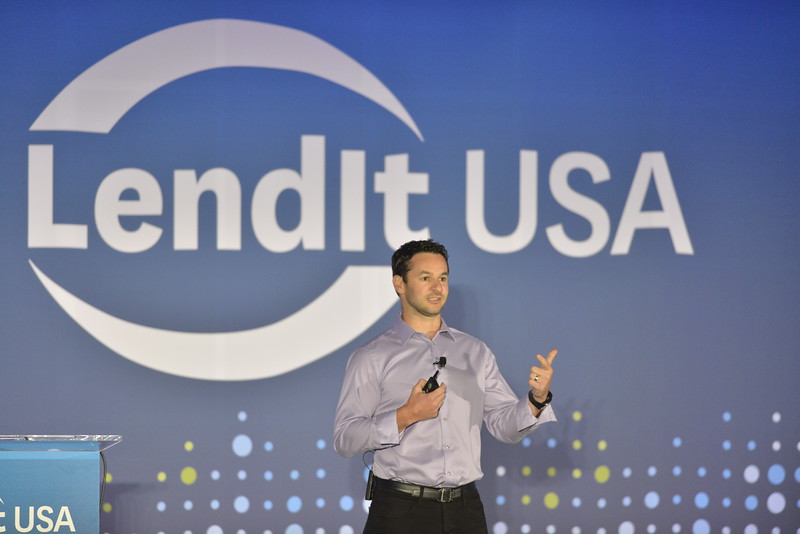Marketplace Lending
From Small to Big: Why Funding Circle is Building its Intermediary Channel
April 21, 2016 If online lenders want to disrupt banking, they need bankers.
If online lenders want to disrupt banking, they need bankers.
Small business marketplace lender Funding Circle hired an intermediary finance veteran Neil Mullane to expand the company’s reach among small merchants. Mullane comes with eight years of experience in commercial finance at Barclays, where he oversaw business and corporate banking working with small businesses with a £250,000 to £25 million turnover.
The London-based P2P lender has channeled more than $2 billion of loans from individual and institutional investors to businesses in the U.S., U.K. and Europe since 2010 and has said that it remains dedicated to two principles, “marketplace and small business.”
And its gaze is set on Europe. Last year, it acquired German marketplace lender Zencap for an immediate footprint in Germany, Spain and Netherlands. Additionally, its SME Income Fund that was listed on the London Stock Exchange in November 2015, raised £150 million from shareholders and started lending to small businesses in those markets last month.
Last week (April 14), the company also launched UK’s first P2P securitized ABS backed by loans worth £130 million.
Speaking at LendIt USA recently, the company’s US co-founder and managing director Sam Hodges envisioned the golden age for marketplace lending where it takes “seconds to issue credit,” from a broad network of global investors. “A loan should get funded by a network of investors all over the world — be it a pensioner in London, a hedge fund manager in Sydney or a family office in New York simultaneously putting money to work through a global platform,” he said.
He elaborated further to note that the industry will have to work on four key tenets to get there: Stable lending capital, taking controlled risks, maintaining operational discipline to make sure that unit economics favor scaling and lastly, maintaining integrity around infrastructure and transparency.
The company has noted its intention to move in this direction at least with hiring the right talent, whether through the former Executive Board Member of the European Central Bank (ECB), Jörg Asmussen Mullane to lead business development or beefing up its risk compliance and product engineering teams in San Francisco.
SoFi Hedge Fund was Not Created for Capital, says CEO Mike Cagney
April 19, 2016If you were at LendIt then you might nod at this — the echo from the alternative lending industry congregation last week had just three words: Long term capital.
Nearly 3500 industry folks gathered at San Francisco to share woes and celebrate victories.
“The nonbank lending industry is at an inflection point,” said Mike Cagney, CEO of SoFi. Cagney known for his candor warned that for the business to make a leapfrog, companies need to establish more balance sheet partnerships, preferably with banks. A failure to do so would cap the number of originations.
“What banks really like is for the alt lenders to be the infrastructure/origination framework and for them to be the balance sheets. But the problem occurs when they also want to retain the customer, this is going to dictate the direction of the industry because you will get a natural cap and you won’t be able to go more than a billion and half originations a month without having balance sheet partnerships.”
In house capital? Not really
Cagney doesn’t want to give the impression that its newly launched hedge fund came about because it couldn’t sell enough loans. It’s rather to gain more access to retail investors and this he said was a simpler vehicle than participating in equity and securitization.
“We have half a billion dollars going into the hedge fund and that’s a week’s production for us. So that’s not going to solve the funding problem.”
We’re not skirting regulation
“It’s a misconception that our industry exists because of some regulatory arbitrage,” Cagney said reasoning that the industry has to follow the same lending regulations as a bank.
“There are lot of limitations that we have because we are not a bank holding company.”
Who are we? Not Banks. What do we want? National lending licenses
Cagney championed the cause for a national lending license and said that Dodd Frank falls short by limiting the Office of the Comptroller of the Currency (OCC).
“The OCC was the mechanism to get a national lending license without the deposit insurance and the industry needs that back.”
Hungry for Data? Avant Acqui-hires Two Startups to Expand Tech Team
April 18, 2016 What are the three vectors for the lending industry today? You’d be wrong if you said anything other than data, data, and more data.
What are the three vectors for the lending industry today? You’d be wrong if you said anything other than data, data, and more data.
And lending companies are on an acquisition spree to collect, analyze and work data to help them find and lend more to new borrowers. Although, acqui-hires or buying a company for a team is not new in the startup circles, it is still a nascent trend among marketplace lending companies that are still carving out territories in the $12 trillion lending marketplace.
Three year old consumer lender Avant acquired two local technology startups, StudyCloud and TempoIQ for data scientists and engineers to build its technology team. StudyCloud is an edtech startup based in Chicago and develops tools for interactive learning. TempoIQ is another Chicago-based startup which provides platforms for Internet-of-Things (IoT) applications and data analytics.
For Avant, this is the second wave of acqui-hires. In March 2015, the company acquired the straggling, online debt management startup ReadyForZero, a tool which let users manage personal debt and credit online. Avant bought ReadyForZero’s technology platform at a time when the company was in a talent crunch, struggling to scale.
“Acqui-hire transactions are a significant win-win for everyone involved. The acqui-hire trend affords members of the startup community to take a chance on their own vision as well as explore new opportunities across various industries,” said Al Goldstein, CEO of Avant in a news release.
As online lenders like Avant bring Silicon Valley and Wall Street closer by using machine learning and big data to develop propriety credit models to identify and lend to new borrowers, acquiring startups to build this technology has become commonplace.
“Acquisitions and acqui-hires are just another sign of how rapidly this industry is evolving. It recognizes the need to bring in highly skilled talent quickly,” said Glenn Goldman, CEO of Credibly.
Last month, (March 14) Square acquired analytics startup Framed Data, again for its team of data scientists to target customers better for Square Capital. The company mined data using machine learning to predict user behavior and purchasing decisions and will bolster Square’s small business lending.
The changing face of the lending industry is evident with the rise in companies lending to tech savvy millennial borrowers, enriching user experience and tailoring loan products to suit specific needs and really, using data to discover more customers.
“At first glance, it looks like Avant is looking to create a dynamic user experience and targeted at nurturing customers before, during or after borrowing decisions are made, beyond just delivering loan at a given point in time,” said Goldman.
Peter Thiel’s Fund Invests $100M in Consumer Lending Startup Affirm
April 15, 2016 There’s another unsecured consumer loan lender on the block and it raised $100 million from PayPal founder, Peter Thiel.
There’s another unsecured consumer loan lender on the block and it raised $100 million from PayPal founder, Peter Thiel.
Thiel invested in long time friend and PayPal cofounder Max Levchin’s startup Affirm which finances online purchases like high end furniture, jewelry and gym equipment to be paid back in monthly installments.
Thiel’s Founders Fund led the latest round, bringing the total capital raised by Affirm to $425 million since 2013. Affirm’s consumers are typically immigrants and recent college grads who do not own credit cards and have no credit history.
The San Francisco-based company’s loans are funded by Cross River Bank and its investors include marquee Silicon Valley names like Lightspeed Ventures, Khosla Ventures and Andreesen Horowitz.
“The financial industry has managed to avoid significant disruptive innovation since the mid-90s, and we are working hard to change that. Our first goal is to bring simplicity, transparency, and fair pricing to consumer credit,” says Levchin on the company website.
Affirm is just one of the many upstarts that are eager to bring ease into people’s financial lives. Another millennial lender, Pave Inc recently raised $8 million from Maxfield Capital that included existing investors C4 Ventures and Seer Capital. The four year old company lends unsecured personal loans, typically used for skill-based vocational training offered at institutions like General Assembly.
To provide some bird’s eye view context, recent data from Transunion showed that most borrowers securing personal loans jumped close to 30 percent in recent years, to 13.72 million in 2015 from 10.57 million in 2013, with 24 million Americans likely to obtain one this year alone.
With more loans comes the probability of more defaults? Data from Transunion further noted that In 2015, the average balance was $7,235, up more than 7 percent from the year earlier. As more money is available for lending, lenders are going after borrowers that might be otherwise deemed subprime by credit reporting standards like FICO scores. Companies like Affirm, Avant and Prosper loans have thus created propriety credit risk models which they claim go beyond traditional credit metrics and assess a consumer’s ability based on filters like the school they attend, rents, utilities etc.
California DBO Releases Report on Alternative Lenders
April 15, 2016 The results of a survey that the California Department of Oversight issued late last year to 14 alternative lenders are in. Affirm, Avant, Bond Street, CAN Capital, Fundbox, Funding Circle, Kabbage, LendingClub, OnDeck, PayPal, Prosper, SoFi and Square all responded. CircleBack Lending declined to take it.
The results of a survey that the California Department of Oversight issued late last year to 14 alternative lenders are in. Affirm, Avant, Bond Street, CAN Capital, Fundbox, Funding Circle, Kabbage, LendingClub, OnDeck, PayPal, Prosper, SoFi and Square all responded. CircleBack Lending declined to take it.
The DBO requested data on term loans, lines of credit, merchant cash advances, factoring transactions and other products.
Other than determining that billions of dollars are being deployed from these companies, they found that median consumer loan APRs ranged between 5.37% APR and 35.94% APR. For businesses, the median APR ranged from 18.56% APR to 51.40% APR.
The number of delinquent (30 days or more past due) consumer financing dollars as a share of total dollars outstanding ranged from .99% to 20.30%
The number of delinquent business financing dollars as a share of total dollars outstanding ranged from .55% to 6.79%.
WebBank Alleged to be “Sham Pass Through Bank” in New Lending Club Usury Class Action
April 15, 2016
A new class action lawsuit filed on April 6th alleges that Lending Club and WebBank among others, violated state usury laws, consumer protection laws and the Racketeer Influenced Corrupt Organizations Act (“RICO”).
Plaintiff Ronald Bethune, a New York resident, is arguing that his 29.97% APR loan through Lending Club violated the state’s 16% interest cap.
While the Second Circuit’s ruling in Madden v. Midland Funding, LLC is cited, the complaint focuses more on WebBank’s role in carrying out a collaborative fraud scheme.
Defendants associated together for the common purpose of limiting costs, eliminating oversight, and maximizing each members’ profits by engaging in the fraudulent conduct described herein. Specifically, the members of the Enterprise enticed tens of thousands of consumers to sign up for loans through LCC [LendingClub Corporation], hoping that enough consumers would select LCC for their loans without the fact that WebBank was a “pass through” sham party to the transaction being brought to light making the loans illegal and usurious. The purpose was to allow Defendants to charge, and profit from, usurious interest rates to Plaintiff and members of the Class, and to do so without regulatory oversight.
The plaintiff acknowledges that Lending Club recently adjusted its relationship with WebBank and the class seeks to recover damages for all loans made prior.
WebBank’s parent company, Steel Partners Holdings LP, who is also named as a co-defendant, has barely registered any movement in its stock price.
Lending Club by contrast, is down almost 10% since the complaint was filed.
YOU CAN DOWNLOAD THE FULL CLASS ACTION COMPLAINT HERE
This case is unrelated to another pending class action against Lending Club.
LendIt Recap: News Headlines You Need to Know
April 13, 2016
Al Goldstein of Avant speaking at the LendIt USA 2016 conference in San Francisco, CA, USA on April 11, 2016. (photo by Gabe Palacio)
As the industry wrapped up one of the biggest conferences of the year, here are some notable company announcements worth filing away:
Chicago-based online lender Avant named former UBS executive Raj Vora to lead the company’s capital raising efforts. Vora will lead strategy for its investment vehicles.
New York-based Student loan refinancer Lendkey crossed $1 billion in origination and deployment
Small business lender National Funding appointed first female president Torrie Inouye. Inouye headed data and analytics for the firm where she drove customer acquisition and underwriting.
Another millennial lender on the block raised Series A funding. New York-based online lender Pave Inc raised $8 million from Maxfield Capital that included existing investors C4 Ventures and Seer Capital. The four year old company lends unsecured personal loans to millennials.
Small business lender Streetshares won SEC approval to launch business bonds to the masses. The product will pay a fixed 5 percent interest (regardless of the performance of a particular underlying loan), is ensured by a provision fund, and provides liquidity as investors can access their funds at a 1 percent fee.
Prosper decided to end its loan sale agreement with Citi and might be in talks with Goldman Sachs. This move comes after a lukewarm reception on a batch of Prosper bonds after investors demanded as much as 5 percent points higher compared to last year.
Funding Circle Still Focused on “Marketplace” and Small Business
April 13, 2016
At Lendit, deBanked asked Funding Circle co-founder and US market head Sam Hodges if the company’s domestic loan volume would eventually outpace originations in the UK. Hodges expressed optimism that it would and explained that the company’s UK origins had simply given that operation a 12-24 month head start.
The company has originated more than $2 billion in loans since inception. A page on their UK site specifies that 1,212,223,380 pounds have gone to british businesses, the equivalent of about $1.7 billion.
Asked if the company would branch out into other types of lending such as consumer, Hodges responded that the company remains dedicated to two principles, “marketplace and small business.” On that note however, he said their UK branch already engages in commercial property loans and didn’t rule out that such a product could eventually be made available in the US.





























